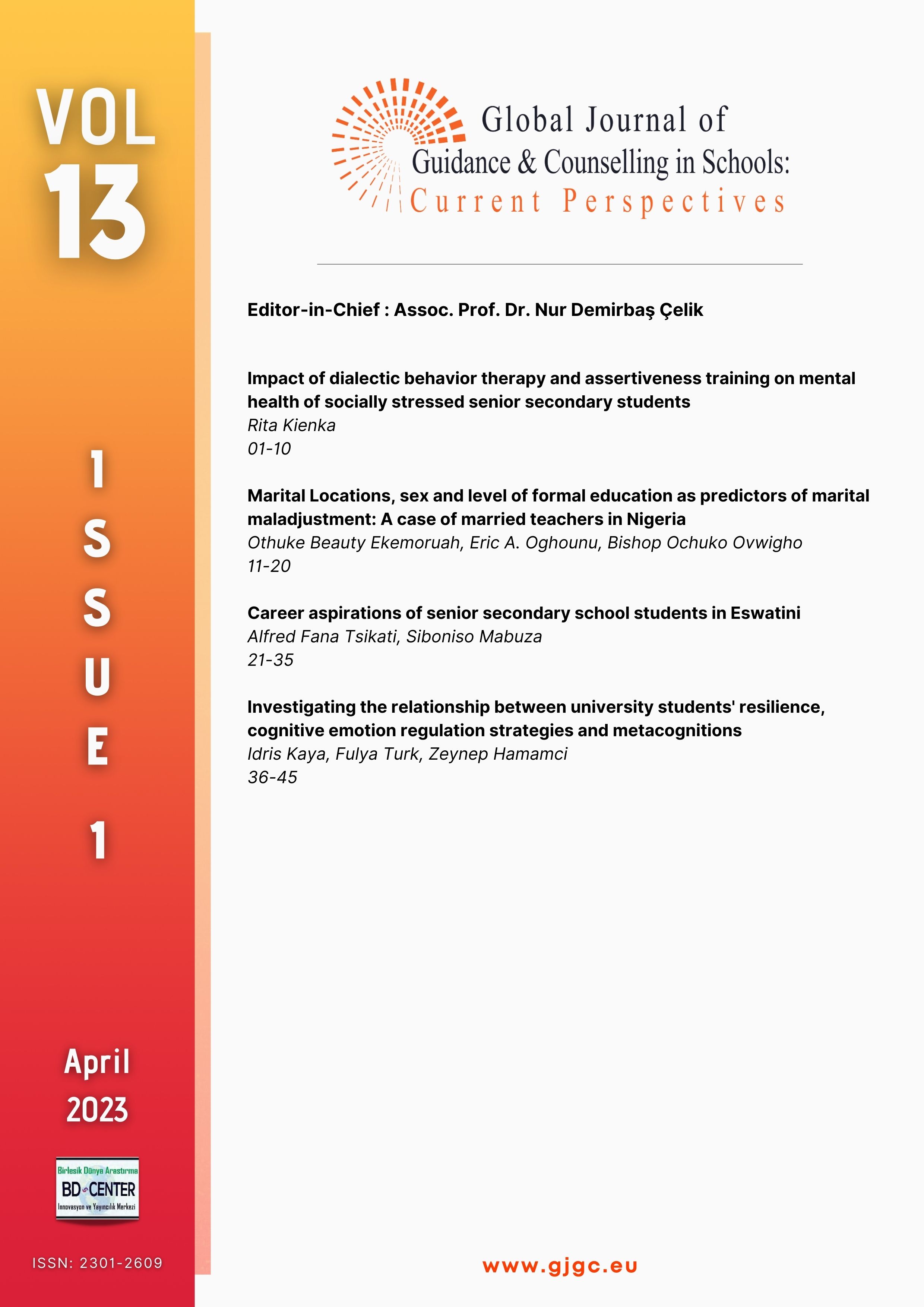Investigating the relationship between university students' resilience, cognitive emotion regulation strategies and metacognitions
Main Article Content
Abstract
The purpose of this study is to investigate the relationship between university students’ resilience level, cognitive emotion regulation strategies and metacognition. The study group of the research consisted of a total of 194 university students, aged between 16 and 47, of which 134 were women and 60 were men. Data collection tools were Metacognition Questionnaire, Cognitive Emotion Regulation Questionnaire (CERQ) and Resilience Scale for Adults. In the correlation analysis, it was seen that resilience showed a significant positive relation with the adaptive CERQ, while the maladaptive CERQ and metacognitions were found to show a significant negative correlation with resilience. In the correlation analysis, it was finally determined that metacognitions did not show a significant correlation with adaptive CERQ but a positively significant correlation with maladaptive CERQ. According to regression analysis, adaptive CERQ, maladaptive CERQ and metacognitions together predicted a 31% variance of resilience.
Keywords: Cognitive, emotion regulation strategies, metacognitions, resilience;
Downloads
Article Details

This work is licensed under a Creative Commons Attribution-NonCommercial-NoDerivatives 4.0 International License.
